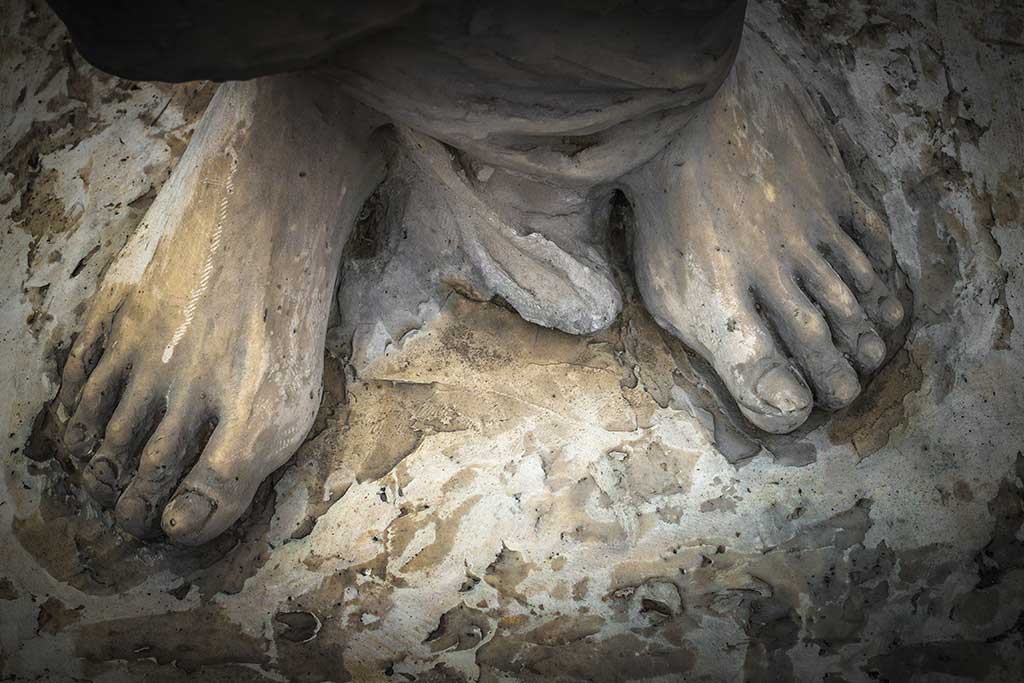Embracing Servant Leadership: Jesus’ Power Rooted in Love and Sacrifice
The Gospel of John offers us vivid pictures of Jesus’ leadership and power. As the Word, Jesus is the creator and light of the world (John 1:1–5). He is the Son of God, sent from the Father (John 1:14–18), the Lamb of God who takes away the world’s sin (John 1:29), God’s Chosen One (John 1:34), the King of Israel (John 1:49), and the Son of Man (John 1:51).
As creator, Jesus has power over all the universe and chooses to bring light into darkness. Being God’s Chosen One, He is empowered by the Holy Spirit, using that power to heal and uplift the oppressed. As King of Israel, He reigns alongside the Father in glory, yet He rejects the oppressive rule of the Roman emperor.
Instead, Jesus’ kingship is as the Lamb of God who willingly gives his life for others because of his great love for them. As Son of Man, Jesus is more than just the one sitting enthroned with God with all authority; he is a bridge between heaven and earth, and the one who will be raised up on a cross.
These characteristics of Jesus’ kingship and power redefine what all leaders should do: reject tyranny, violence, power for its own sake, and instead embrace love, sacrifice and care for those in the greatest need.
Let’s look deeper into Jesus’ model of servant leadership from the book of John.
Jesus’ Profound Humility: John 13:1-30
As the time of his death approaches, Jesus is aware of Judas’s impending betrayal (John 13:1-2). Yet when Jesus washes the disciples’ feet, he includes Judas. Foot washing was an activity that servants did. Upon entry, guests would have their feet washed by a servant before they were served a meal. We hear why Jesus chooses to do this: “Jesus knew that the Father had put all things under his power, and that he had come from God and was returning to God” (verse 3). Jesus’ show of humility is his power over all things. Opting for humility underscores His power, not weakness. He actively surrenders his power to serve and purify his people.
After he washes their feet, Jesus eats with his disciples. He sits near his betrayer, Judas, giving him food to eat as a sign of who will betray him. Not only does Jesus serve his betrayer by washing his feet like a servant, but also by feeding him.
Jesus shows that true humility is not grounded in powerlessness, but in a demonstration of what true divine power is—serving those who do not deserve our grace. Jesus lays down his prestigious status in order to serve the person who he knows will betray him. This is Jesus’ shocking undoing of the expectations of his time and of ours. He does not execute vengeance on his betrayer; instead, he cares for him. He does not wield his power for selfish gain, but instead uses his power to love others. This picture of humility in power can transform how we serve each other if we embrace it.
True Power and Authority: John 14:5-11
If we want to know what God’s power looks like and how the Father uses his authority, we look to Jesus. What do we see? Jesus uses his power in service to others: healing the sick, freeing those oppressed by demons and washing his disciples’ feet. When the disciples ask him to “show us the Father,” Jesus explains seeing Him is seeing the Father (John 14:8–9), emphasizing their unity.
This passage shows us that we misunderstand true power and authority if we believe it should be used to dominate others. God the Father and Jesus the Son are one in their actions to heal, free and serve. They show us what true power and authority look like— sacrificially serving others with humility. Every Christian leader should emulate this kind of Christlike leadership.
Lead with Love and Sacrifice: John 21:1-19
In restoring His relationship with Peter, Jesus imparts a lesson on kingdom leadership (John 21:15–19). Peter has shown his impulsive and effervescent love for Jesus and his hesitancy to believe that Jesus must suffer; he has also denied his relationship with Jesus three times. Restoration requires time with Jesus, who charges Peter with leadership—feeding His sheep.
The exchange between Peter and Jesus is filled with tension and with love. Three times Jesus asks Peter whether he loves him; three times Jesus receives an affirmative answer, and three times Jesus responds by giving Peter a task of leadership. Using the metaphor of shepherding, Jesus’s final charge prophesies Peter’s death, symbolizing a love-filled, sacrificial death that glorifies God (verses 18–19).
The tension Peter feels during Jesus’s repeated questions about his love is essential for the kind of leader he will become. Today, we need this repeated reminder and the tension it creates. “Do you love me?” Jesus asks us. When we say “yes,” we must also be willing to take on whatever task he assigns us. John’s Gospel and letters frequently show us that Jesus believes that love involves action rather than only words. He calls each of us to care for his people as proof of our love for him.
Drawn from study notes in the NIV Upside Down Kingdom Bible.

Upside Down Kingdom Bible
God calls believers to live faithfully in a way that flips the wisdom of worldly kingdoms on its head. The NIV Upside-Down Kingdom Bible provides readers with thoughtful, Scripture-based notes from a diverse set of trusted Christian voices and explores difficult issues facing Christians today, with features that are honest, nuanced, and filled with grace. This Bible includes hundreds of side-column notes, articles, and book introductions that thoughtfully address topics such as race and ethnicity, creation care, science, abortion, wealth and poverty, gender and sexuality, politics, baptism, technology, and more.
Learn More





